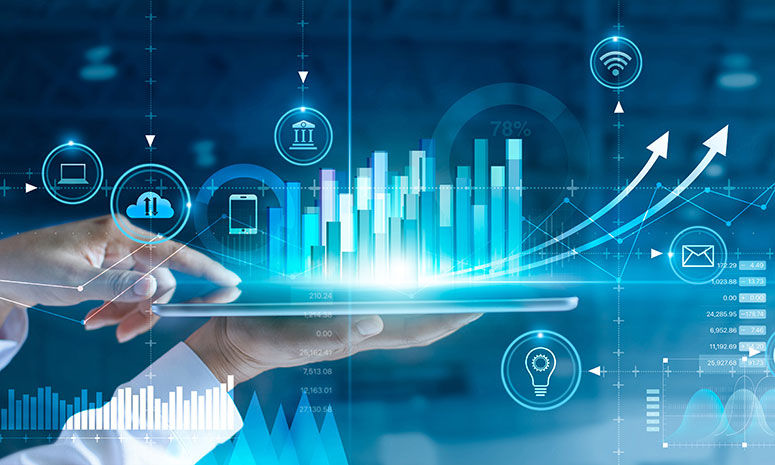Unlocking the Power of Data Science: A Comprehensive Guide
- Purva Yadav

- Sep 7, 2024
- 3 min read

Data is frequently referred to as the new oil in the current digital era. Data Science, the field that extracts insights from this invaluable resource, has become an essential discipline for businesses and researchers alike. This article explores the fundamentals of data science, its significance, and how it can be applied across various industries to drive decision-making and innovation.
What is Data Science?
Data science is an interdisciplinary area that extracts knowledge and insights from both structured and unstructured data using scientific procedures, systems, algorithms, and methodologies. It combines techniques from statistics, computer science, and domain-specific knowledge to analyze data and inform decision-making.
Key Components of Data Science
Data Collection and Acquisition: The first step in data science is collecting and acquiring data from various sources. Databases, spreadsheets, APIs, and web scraping are a few examples of this. The quality and relevance of the data are crucial for accurate analysis.
Data Cleaning and Preparation: Raw data often comes with inconsistencies, missing values, or errors. Data cleaning involves correcting or removing these issues to ensure the data is reliable. Data preparation includes transforming the data into a format suitable for analysis.
Exploratory Data Analysis (EDA): EDA is the process of summarizing and visualizing data to understand its underlying patterns and relationships. Techniques such as descriptive statistics, histograms, and scatter plots are commonly used.
Statistical Analysis and Modeling: This involves applying statistical methods and models to analyze data and make predictions. Techniques include regression analysis, hypothesis testing, and machine learning algorithms.
Data Visualization: Effective data visualization helps to communicate findings clearly. Tools such as Tableau, Power BI, and Python libraries (e.g., Matplotlib, Seaborn) are used to create charts, graphs, and dashboards.
Interpretation and Reporting: The final step is interpreting the results and presenting them in a way that is understandable and actionable for stakeholders. This often involves creating reports and presentations that highlight key insights and recommendations.
Applications of Data Science
Business and Marketing: Companies use data science to understand customer behavior, optimize marketing campaigns, and improve product recommendations. By analyzing customer data, businesses can tailor their strategies to meet the needs and preferences of their target audience.
Healthcare: Data science plays a crucial role in healthcare by enabling predictive analytics, personalized medicine, and disease outbreak prediction. It helps in analyzing patient data to improve treatment outcomes and streamline operations.
Finance: In the finance sector, data science is used for fraud detection, risk management, and algorithmic trading. By analyzing financial data, institutions can identify potential risks and opportunities, improving their decision-making processes.
E-Commerce: E-commerce platforms use data science to enhance user experience through personalized recommendations, dynamic pricing, and inventory management. Data analysis helps in understanding shopping patterns and optimizing supply chain operations.
Social Media: Social media platforms leverage data science to analyze user interactions, detect trends, and measure the impact of content. This helps in content moderation, targeted advertising, and user engagement strategies.
Skills Required for Data Scientists
To excel in data science, one needs a blend of technical and soft skills:
Technical Skills: Proficiency in programming languages (e.g., Python, R), knowledge of statistical methods, and experience with data manipulation tools (e.g., SQL) are essential. Familiarity with machine learning frameworks and data visualization tools is also important.
Soft Skills: Critical thinking, problem-solving, and communication skills are crucial for interpreting data and conveying findings effectively. The ability to work collaboratively in a team and adapt to changing technologies is also valuable.
Future Trends in Data Science
Artificial Intelligence and Machine Learning: The integration of AI and machine learning with data science is expected to drive innovation in predictive analytics, automation, and real-time data processing.
Big Data: The increasing volume and variety of data will continue to challenge data scientists. Advances in big data technologies and distributed computing will be crucial for managing and analyzing large datasets.
Ethical Considerations: As data science evolves, ethical considerations regarding data privacy, security, and bias will become increasingly important. Ensuring responsible data practices will be vital for maintaining trust and transparency.
Conclusion
Data Science is a dynamic and rapidly evolving field that offers immense potential for
solving complex problems and driving innovation. By leveraging data effectively, businesses and organizations can gain valuable insights and make informed decisions that lead to success. Whether you are an aspiring data scientist or a professional looking to enhance your skills, understanding the core principles and applications of data science is key to unlocking its full potential. For those interested in formal education, a Data Science course in Dehradun, Delhi, Noida, Ghaziabad and other cities of India can provide a solid foundation and open doors to exciting opportunities in this field.



Comments